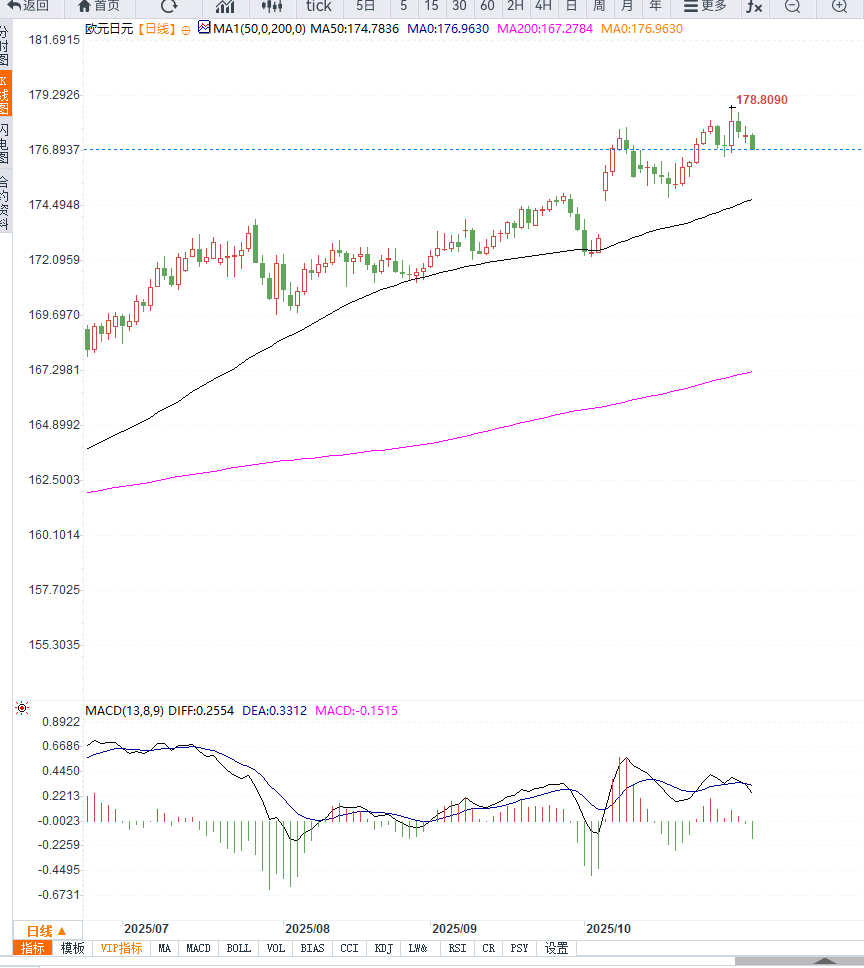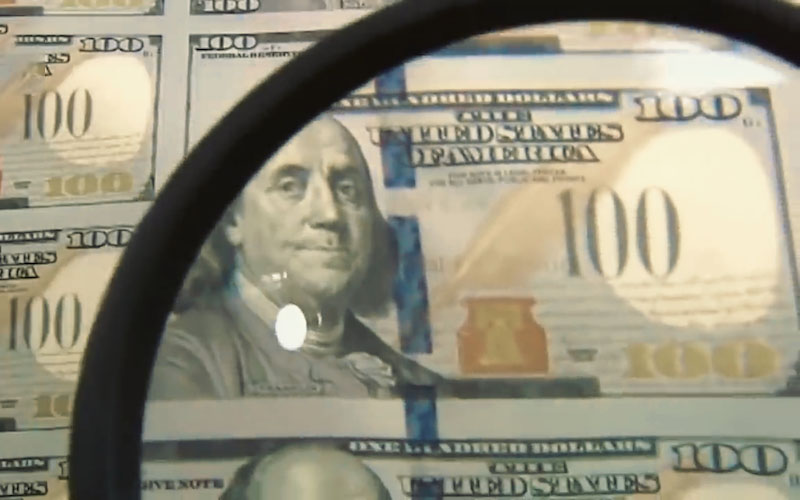The euro fell to 177.20 against the yen, with limited short-term support due to hawkish signals from the Bank of Japan and expectations of fiscal policy.
2025-11-04 13:55:45
Last week, Bank of Japan Governor Kazuo Ueda hinted in a speech that if the economy and prices move in line with expectations, the central bank may raise interest rates in December or January 2026. This hawkish signal has led the market to reassess the yen's outlook.
However, uncertainty remains. Newly appointed Prime Minister Sanae Takaichi plans to implement a more aggressive fiscal spending program, which may conflict with monetary tightening objectives, thus delaying the Bank of Japan's interest rate hikes.

At the same time, the newly appointed Finance Minister, Satsuki Katayama, clarified that she no longer adheres to the view she put forward in March of this year that "the fair value of the yen is in the range of 120-130," and emphasized that her main responsibility at present is to supervise exchange rate policy. This statement indicates that the government may intervene in the foreign exchange market if necessary to stabilize exchange rate fluctuations.
Despite support for the yen, policy expectations regarding the euro are also providing some buffer for the exchange rate. At its October meeting last week, the European Central Bank (ECB) kept interest rates unchanged for the third consecutive time, stating that the inflation outlook was generally stable, the economy continued to grow, but external uncertainties remained.
This decision was in line with market expectations and also indicates that the central bank is inclined to postpone further action. Latest data shows that the eurozone inflation rate has fallen to just above the 2% target level, third-quarter GDP growth exceeded market expectations, and October business surveys showed a recovery in business confidence.
French central bank governor Francois Villeroy de Galhau said after the meeting that the European Central Bank is currently in a "pretty good position," but its policies are not "fixed."
Martins Kazaks, governor of the Central Bank of Latvia, also pointed out that the risks to inflation and growth in the Eurozone are becoming more balanced, and the central bank should "act cautiously and avoid overreacting."
From a technical perspective, the euro has fallen from its high of around 179.00 against the yen last week and has broken below the short-term support level of 177.50. The 14-day Relative Strength Index (RSI) has declined to 45, indicating that the short-term weakness continues.
If the exchange rate breaks below the 177.00 level, it may trigger an accelerated decline towards the 176.30 and 175.80 areas; conversely, if it returns above 178.00, a rebound is expected to resume, with targets at 178.70 and 179.20.

Editor's Note:
From a macroeconomic perspective, the euro/yen exchange rate is being driven by divergent policy expectations. The Bank of Japan's hawkish hints have increased the yen's attractiveness in the short term, but fiscal expansion plans could weaken the tightening outlook, creating a policy "tug-of-war."
The European Central Bank's wait-and-see approach has left the euro without a clear direction. Overall, EUR/JPY may remain range-bound in the short term, but if the Bank of Japan signals a clearer rate hike in December, the exchange rate could fall further towards the 175 level.
- Risk Warning and Disclaimer
- The market involves risk, and trading may not be suitable for all investors. This article is for reference only and does not constitute personal investment advice, nor does it take into account certain users’ specific investment objectives, financial situation, or other needs. Any investment decisions made based on this information are at your own risk.





















